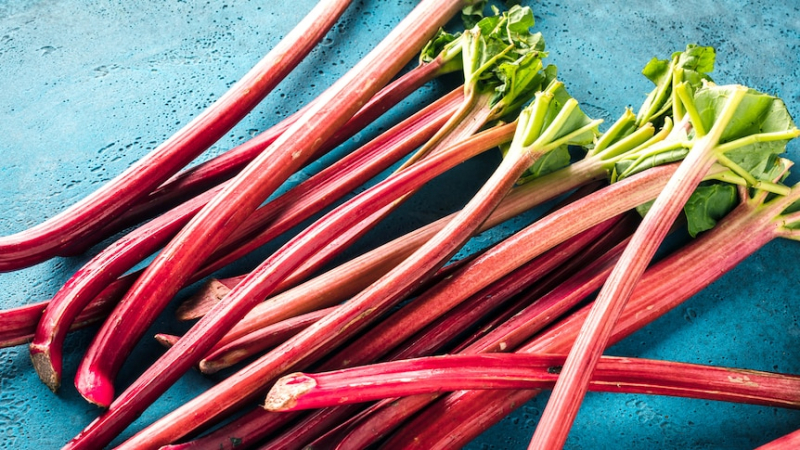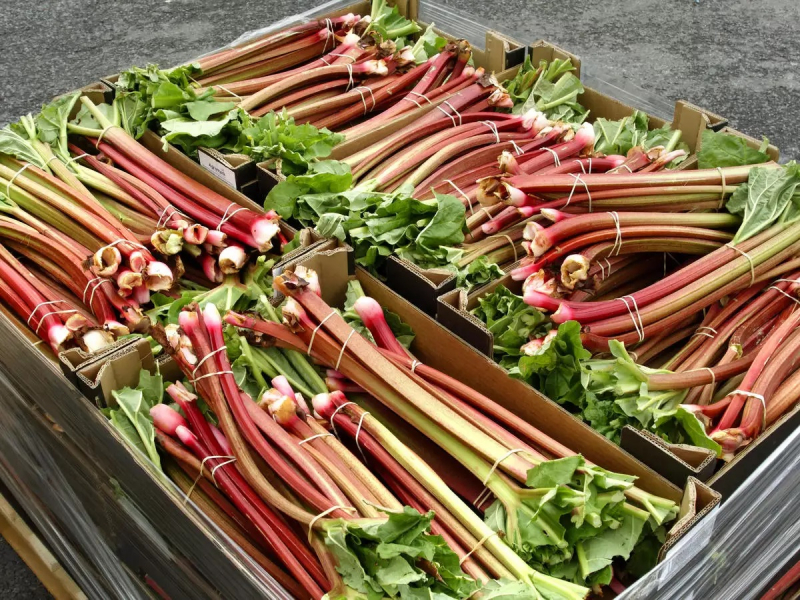Rhubarb
Rhubarb is a leafy plant with bowel-stimulating effects. It includes the chemical sennoside A, often known as Senna, which is a popular herbal laxative.
Sennoside A from rhubarb works by lowering the levels of aquaporin 3, a protein that regulates the movement of water in the intestines, according to rat research. Less water is moved from the colon back into the circulation when aquaporin 3 levels are low, making stools softer and increasing bowel motions. In addition, 1 cup (122 grams) of rhubarb includes 2.2 grams of dietary fiber, which accounts for 9% of the recommended daily intake of fiber. The rhubarb plant's leaves are poisonous, but the stalks can be chopped and cooked. Rhubarb is a tart vegetable that is frequently sweetened and used in pies, tarts, and crumbles. For a fiber-rich breakfast, mix it together with oats or muesli.

















